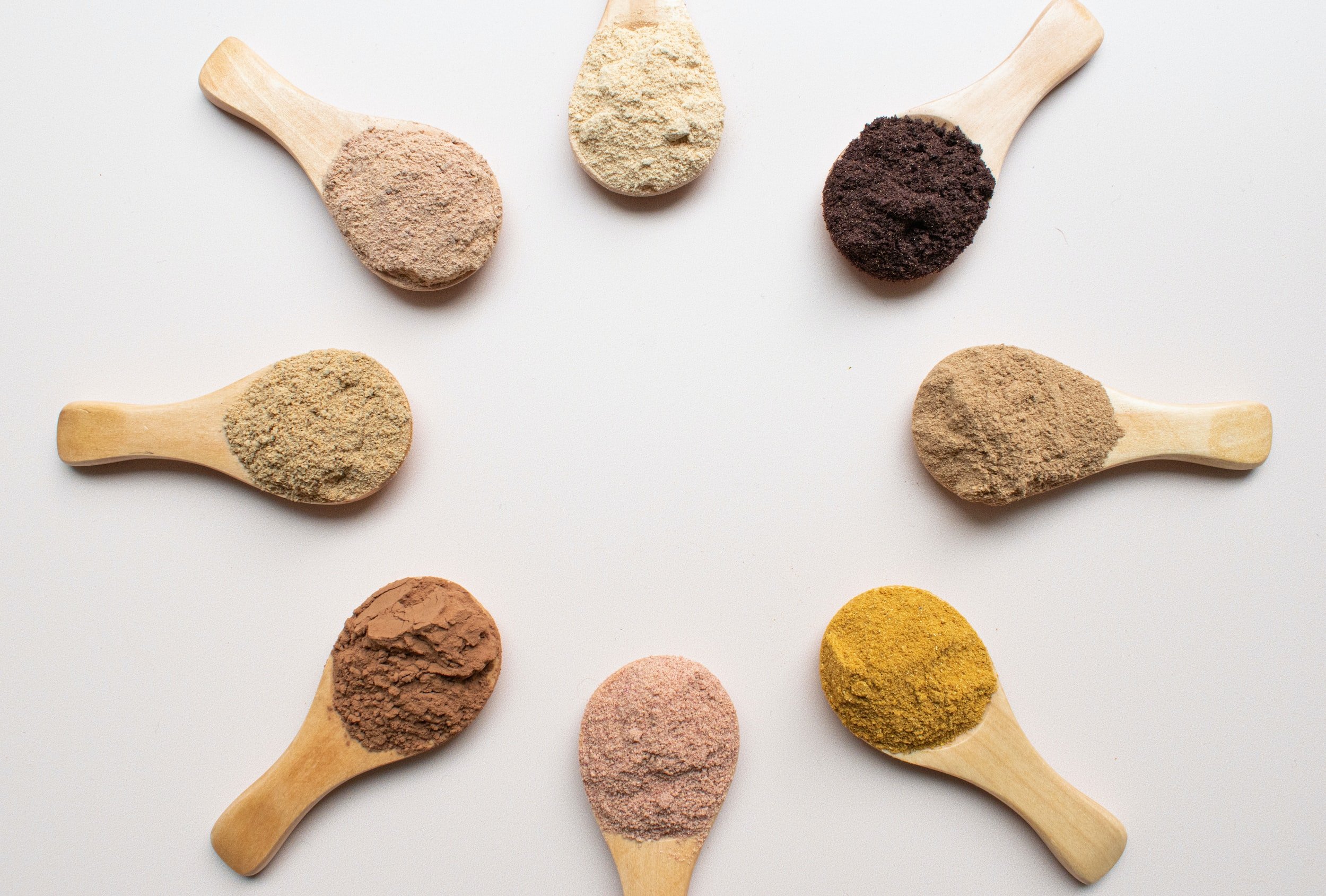How to Choose a Protein Powder
How to Choose A Protein Powder
Finding it difficult to choose a protein powder? Are you unsure if you even need one? Join Registered Holistic Nutritionist, Courtney Rae Jones, as she provides tips on choosing the right one for your needs.
Sometimes it can be difficult to get enough protein throughout the day - especially in the morning. In general, I like to recommend that adults get 25-35 grams of protein per meal and 5-10 grams of protein per snack per day. Protein is essential for many functions in the body such as tissue repair, build bones & muscles and the formation of hormones.
Many people can get enough protein through their diet without any supplements such as protein powders or collagen. That being said, if you are struggling to get enough protein into your diet, protein powder is an excellent way to get some in. I highly recommend protein powders to anyone who needs extra protein such as people going through chemotherapy or individuals following a vegan or vegetarian diet.
However, to get the most benefit from your protein powder, you want to make sure to choose a protein that isn’t loaded with fillers and artificial products.
Here are some tips of choosing a good protein powder:
Choose one that does not contains artificial sweeteners, flavourings or colourings.
Go for whole food sources of protein (ex. whey, pea protein, quinoa protein, hemp protein, etc.)
Avoid protein powders with added sugars (around 5 grams of carbs or less per serving).
Look for a protein powder that provides 15-25 grams of protein per serving.
Be cautious if you have any allergies or food sensitivities, as many powders have milk, soy, nuts, seeds, etc.
Consider choosing a fermented or sprouted plant-based protein if you are prone to gas or bloating. Whey protein is easily digestible and a good option for many. It does contain a small amount of lactose for those who are sensitive, or those following a vegan diet.
NOTE: Certain natural sweeteners such as stevia can also cause bloating and gas in certain individuals. I recommend buying unsweetened protein powders and adding a small amount of fruit and/or pure maple syrup to sweetener to your taste.
Brands I recommend: Sun Warrior, Garden of Life, Progressive Nutritionals, Genuine Health, Iron Vegan and Omega Nutrition (especially the pumpkin seed protein powder).
CAUTION: Daily protein requirements may vary depending on health status, medical condition, age, size and activity level. Please speak to a medical professional to calculate the specific amounts needed for your body and lifestyle. Special care needed in using protein is recommended for individuals with kidney disease.
Courtney Rae Jones is a Registered Holistic Nutritionist. She is also a Culinary Nutrition Expert having completed her certification in alternative & specialized diets through the Academy of Culinary Nutrition. She specializes in digestive health and balancing women’s reproductive hormones. Check out Courtney’s website at www.crjnutrition.com.


